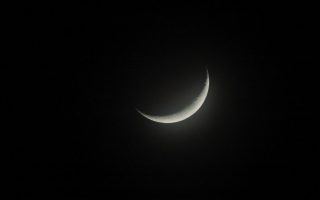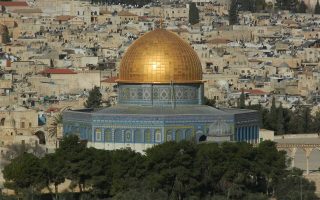Every year, the end of Ramadan is marked by Eid al-Fitr. It is sad to let Ramadan go, but we are equally welcoming Eid which Allah (SWT) has enjoined upon us as a favor after 29/30 days of fasting. One of the most important Sunnah (or Wajib or Fard, based on the difference of opinions of scholars) is Salat al-Eid, or the Eid prayer.
It is not uncommon for many Muslims to attend all the five daily prayers in the masjid, but attending the Salat al-Eid is different. It has a much broader perspective.
This article provides some reflections on Salat al-Eid, as well as the manner and nature of Eid prayers.
Lessons We Can Learn From Salat al-Eid
Equality Among All
This is a less-talked about subject in Islamic discussions, in spite of its importance.
In his Farewell Sermon, Prophet Muhammad (PBUH) said: [1]
No Arab is superior over a non-Arab, and no white is superior over black, nor a black over white and superiority is by righteousness and Allah-fearing alone.
During Salah, and especially in Salat al-Eid, we can observe that people from different economic status, nationalities and races come together. This makes us realize how we all are equal in front of Allah (SWT), and differ only in terms of our piety and good actions. It is an important lesson that we, as Muslims, need to remind ourselves often.
The Ultimate Truth
We know that Islam is the Ultimate Truth, but for most us, it is just a fact that we believe in. We no longer care about practising Islam as a Truth, but rather just view it as a set of religious guidelines.
The Eid prayer is a good time for us to reflect and introspect on the nature and goal of Islam. Prior to the Salah, there is continuous recital of Takbir (“Allah is the Greatest, Allah is the Greatest, Allah is the Greatest, there is no god except Allah, Allah is the Greatest, Allah is the Greatest, Allah is the Greatest, and all praise be to Allah”).
Listening to the Takbir can create a humongous feeling. It penetrates right into our hearts and puts the love and fear of Allah in us. We glorify and praise Him for the blessed days of Ramadan, the celebrations of the day of Eid, and for all the other blessings that He has bestowed upon us.
The lesson from the Eid prayer is that even if you are feeling low and sad, DON’T STOP! Continue and keep going because what matters is the ending, not the beginning.
Community And Oneness
The amazing aspect of Salat al-Eid is that the women, children and the elderly, who normally perform their Salah at home, can join this gathering. Prophet Muhammad (PBUH) said: [2]
Bring out the women who have attained puberty and those who are in seclusion so that they may attend the Eid prayer and (join in) the supplication.
Brotherhood and oneness is a significant factor in Islam. At occasions such as the Eid prayer, we can see and meet other members of the community. It makes us realize that we are part of a much broader community — the Ummah of our Prophet (PBUH) — rather than being ‘just me and my family’. People tend to exchange greetings, sweets, etc. with each other on this blessed occasion. This is where we actually feel the true spirit of unity and oneness in Islam.
May Allah (SWT) give us a happy end to this Ramadan, and a Blessed Eid!
References
- The Final Sermon of Prophet Muhammad (PBUH)
- Sunan Ibn Majah Volume 01, Book 05, Hadith 1308
Featured Image: Wikimedia Commons



